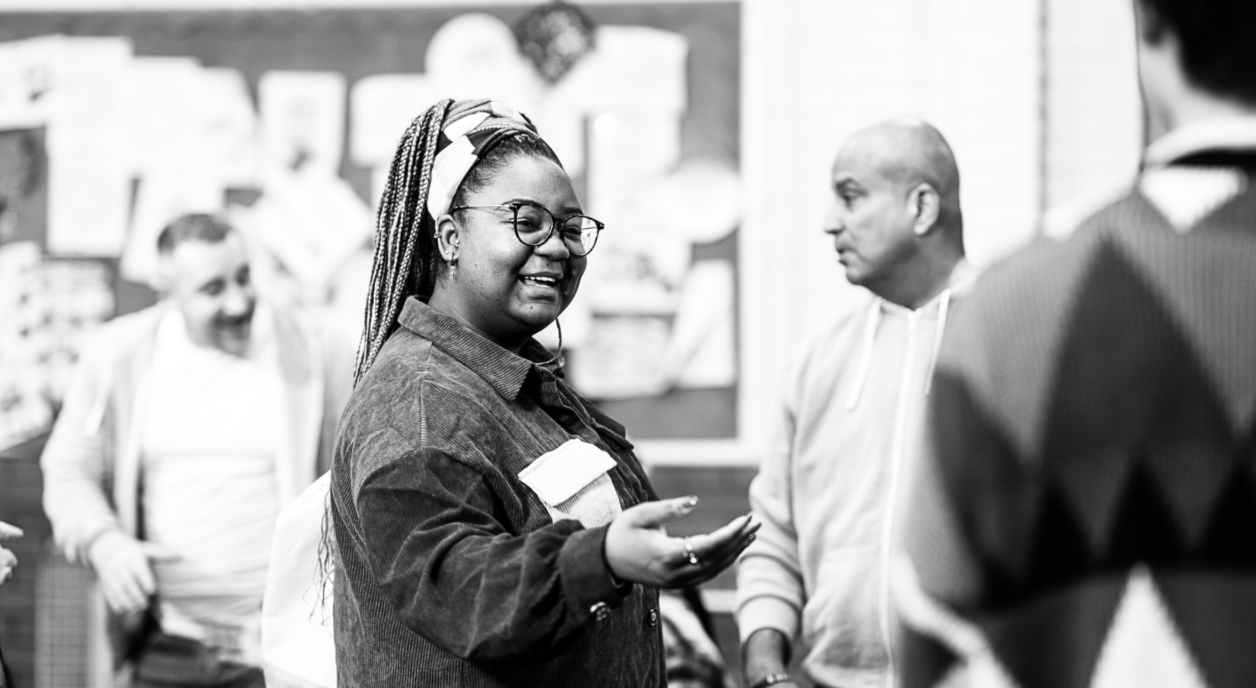What we learned when we listened to community voices

“What we learned when we listened to community voices“ is reprinted from the McKnight Foundation.
As the McKnight Foundation began developing a new program devoted to equity and inclusion in our state, we’ve been mindful that engaging the wisdom and expertise of individuals and communities beyond the Foundation walls increases the program’s relevance, credibility, and effectiveness. As we get closer to the public launch of our grantmaking guidelines this fall, we are pleased to report back what our board and staff are hearing and learning from community voices.
A multifaceted approach in search of diverse community input
At the end of October 2019, McKnight launched a multifaceted input-gathering process designed to help shape and inform the Foundation’s new Vibrant & Equitable Communities program. With McKnight’s history, Strategic Framework, and staff expertise as critical frames of reference, the Foundation gathered input from over 1,000 stakeholders, representing a diverse cross section of people, places, sectors, and organizations in Minnesota and beyond.
The process listening to community voices involved four components:
- A series of listening breakfasts
- Structured interviews with local and national leaders
- Convenings hosted by partners in Greater Minnesota and the Minneapolis–St. Paul metro area
- A broadly accessible online questionnaire
We are grateful for the valuable insights of all who participated and sincerely thank them for their generosity in sharing their time, experience, and knowledge. We prioritized this work because we knew that engaging multiple and diverse forms of knowledge—from lived experience and field and subject matter knowledge to ancestral memory and community-based relationships—would make us wiser, and our strategies more relevant and effective.
We hope that these learning returns give others an insight into what it takes to advance more inclusive and equitable communities in Minnesota.
Some key themes our partners lifted up
To support our process, McKnight worked with Frontline Solutions, a national strategic consulting firm. Their team helped with process design, structured interviews with local and national leaders, and hosting a day-long peer review session with national advisors. They also created a summary analysis from all of the engagement efforts. In it, they lifted up three core themes to inform our future grantmaking:
- understanding philanthropy’s relationship to power, and how we can reflect more deeply about how power can be held or shared (analysis);
- elevating that how McKnight does the work is as important as what we choose to focus on (methodology); and
- specific strategy ideas that McKnight could focus on to build more vibrant and equitable communities across Minnesota (implementation).
Our partners at the University of Minnesota’s Center for Urban and Regional Affairs (CURA) helped us to collate and summarize the data from the online questionnaire. Here is their full report.
In reviewing the results of all these efforts, we heard a range of advice on areas for potential grantmaking, such as affordable housing, community ownership, community organizing, and impact investing. The participants noted the many intersections between the climate movement and equity work, especially the opportunity for clean energy jobs and cleaner air for those disproportionately burdened by the climate crisis. We also heard about the critical role that the arts and culture sector can play in advancing more vibrant and equitable communities.
Additionally, participants encouraged us to seriously grapple with what it will take for McKnight to implement our new program in alignment with our commitment to diversity, equity, and inclusion. This affects our relationships with community leaders, the way we design our grantmaking process, and how we define evaluation and impact. How we show up in these spaces is just as important as what strategies the Vibrant & Equitable Communities program pursues.
Applying this feedback
What we learned from this engagement shapes our thinking, strengthens the development of our strategies, and influences how we articulate our funding guidelines and priorities. We anticipate that this will become clearer in the fall when we launch the new program guidelines and eventually, when we begin making our first grants.
In addition to influencing strategy development, the process itself has resulted in an increased commitment to incorporating community engagement as an ongoing part of our new Vibrant & Equitable Communities program. Even with the stay-at-home order required by the COVID-19 pandemic, we engaged community leaders in four “think tank” conversations about our possible strategic direction via Zoom. These conversations affirmed what we had been learning from our engagement this past winter and added new layers of analysis that allowed us to further refine strategy development.
We continue to reflect on what it takes to build our own capacity to incorporate partner insights into ongoing program learning and adaptation. We’ve been designing methods that support real-time inquiry, deeper dives on sticky or hidden issues, and feedback loops from grantees and partners. Our hope is that efforts to learn with and from our partners will benefit both McKnight and our grantees and partners, as we find ways to collectively share with one another what we are seeing, doing, and learning.






